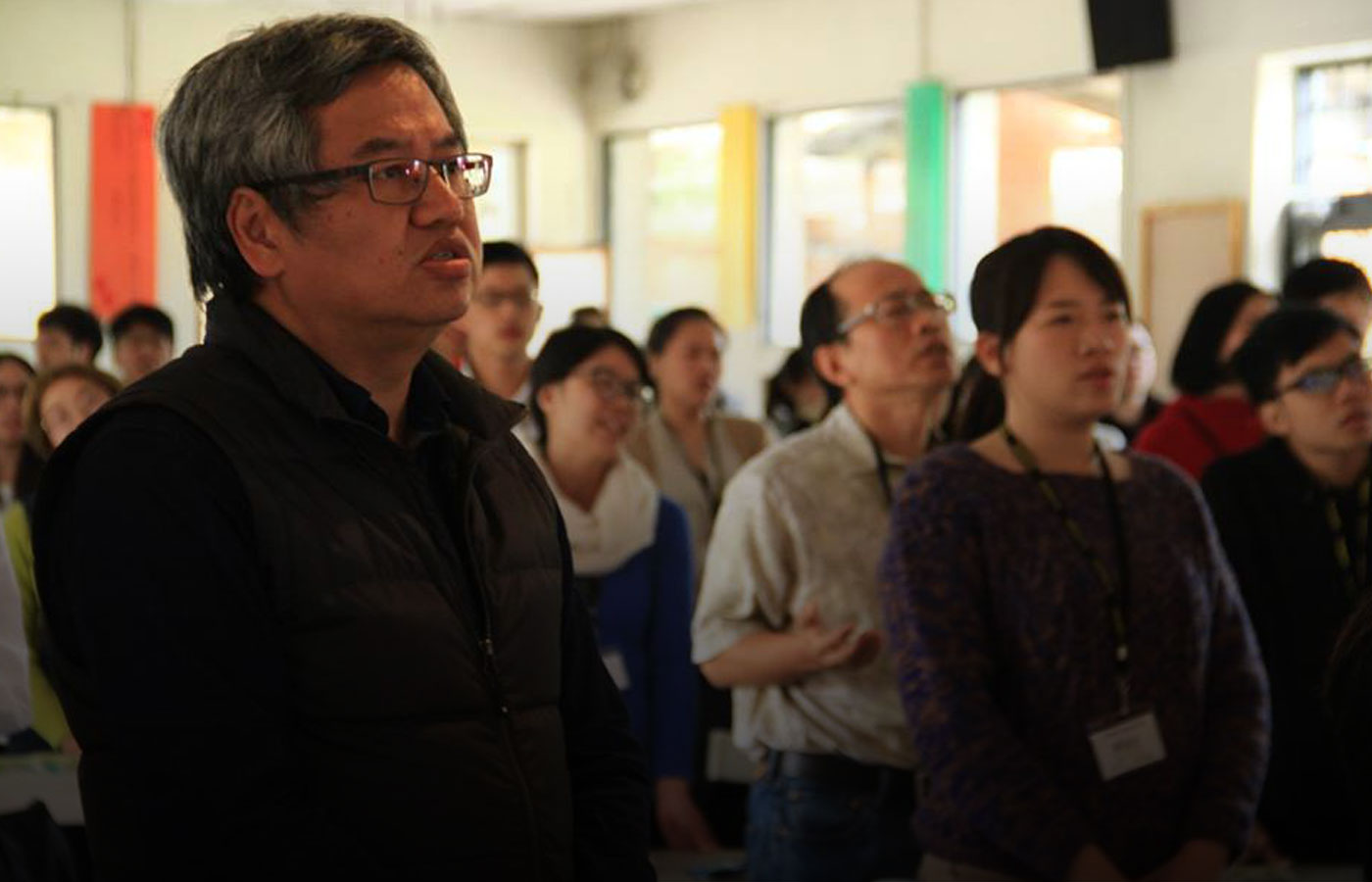Christianity has seen much growth since it first reached the shores of Taiwan 150 years ago.[1] Today there are roughly 4,000 churches around the island. In addition, we are also blessed with numerous established Christian organizations, media and publishing companies, and highly regarded seminaries. However, there is still much work to be done towards fully responding to the Great Commission.[2]
While quite well resourced, the Taiwanese church is unfortunately marked by an inward-looking and insular mindset.
Insular mindset
Based on the results of a survey we undertook in 2017,[3] it emerges that, of these 4,000 churches, less than 10 percent participate in missions, mostly within the Han Chinese circle (E1),[4] whether near or afar. Although Christians constitute 5 percent or more of Taiwan’s population of 23.55 million, these 4,000 local churches only send around 600 full-time missionaries overseas. Only a handful of these pioneers are currently serving in the cutting-edge Unengaged, Unreached People Group (UUPG) context. While quite well resourced, the Taiwanese church is unfortunately marked by an inward-looking and insular mindset. This mindset, consequently, permeates the church as well.
Less than
10%
of churches participate in missions
Only
600
full-time missionaries overseas
In the past two decades, the churches in Taiwan have gradually matured from a ‘recipient’ to a ‘giver’ mentality. However, we, as mobilisers, face considerable obstacles in challenging churches to commit to works beyond their own walls:
- Taiwan churches need to make progress towards equipping disciples for the nations and not focus solely on increasing the size of their own congregations.
- Church leaders need to start allocating resources for the needy, rather than the sound system or buildings.
- We must encourage our workers to change the world, rather than just telling them ‘not to be changed by the world’.
Mobilising for mission
However, we recognize this vision and burden must come from God, not from the calling of some specific individuals or the campaign of a church or institution. With this huge task set before us, United Missions of Taiwan (UMOT) has played a role as a platform for mission resources in the last few years as it seeks to fulfil the vision of mobilising Taiwanese Christians for mission.
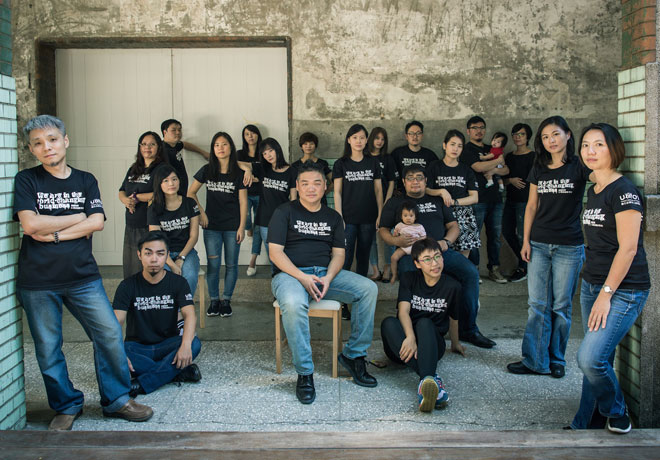
Photo Credit: Zoe Chen
It seemed like an impossible mission when I walked into the office on my first working day in January, 2012. The ministry was basically just a name, without significant financial resources or any programmes that might connect with the churches or mission agencies. Far from being effective as a mobilisation entity, we struggled to make it through to another day. Worst of all, there was no team, other than Father, Son, Holy Spirit, and me.
God brought along new recruits, new partners, ministry opportunities, and more.
However, we had a clear vision to pursue the dream of missions. With a clear vision, we could explain to partners the ‘why’, which is more important than the ‘what’. As the old proverb goes, ‘When the will is ready, the feet are light.’ Once they got the ‘why’, they could in turn communicate the vision to others. The momentum started to build up from there. God brought along new recruits, new partners, ministry opportunities, and more.
Social media focus
When we tackle that challenge of connecting churches, denominations, para-church organizations, missions organizations, and individual Christians, we have to make use of social media and modern-day information and communications technology (ICT). This is especially true in Taiwan where 82.3 percent of the population are heavy users of internet.[5] Adopting an integrated communication strategy, we gradually transformed the traditional written materials (articles on missions, training materials, prayer guides for UUPGs, and more) into new formats.
82.3%
of population are heavy internet users
This process involved more than just the digitalization of content and putting it on a low-traffic website. We established a number of Facebook fan pages, each with their own purposes. With clear segmentation, the emphasis would not be fragmented. We have a page with more than 11,000 members just to focus on prayers – praying regularly, globally, intelligently, continually, and interactively.[6]

There is another group which is literally called ‘I want to be a missionary’,[7] full of testimonies from missionaries, announcements by mission organizations, tips for short-term trips, and information about events, conferences, or prayer meetings. Meanwhile, acknowledging the importance of multimedia resources, we recruited personnel to oversee digital content and engagement, and a media specialist for production. With limited capacity in this small team, we made short videos, cartoons, infographics, and even a whole series on ‘how to be a missional church for dummies’.[8]
In parallel, we continued more traditional mobilisation approaches, such as speaking engagements, operating Kairos and Perspectives courses regularly, and leaving a stack of prayer booklets at entrance of churches. In the process, we found that the combined efforts paid off as ‘all things worked together for good’.
A resource for the Chinese speaking world
By the grace of God, over the last six years, UMOT has grown from a one-man unit to a team of 20 energetic youngsters:
- We serve in partnership with more than a dozen mission organizations (both internal and Chinese-oriented).
- We run an exceptional Chinese Perspectives study program in five to seven different cities every week.
- We publish 12,000 copies of MissionPathway (a global prayer digest in Chinese) quarterly.
- We engage with more than 300 churches annually.
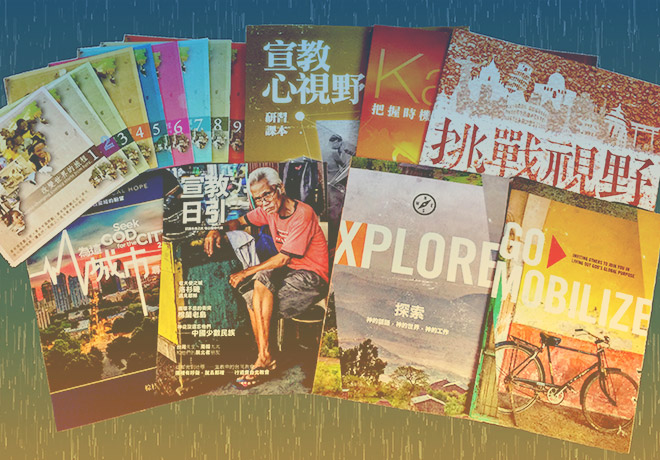
Most significantly, we have experienced that the wave of cross-cultural missions is no mere slogan but something concrete and ‘up-close and personal’.
Based in Taiwan, we actually have a special niche to serve as a resource platform for the greater Chinese-speaking world:
- Taiwan, due to its open religious environment, probably has the greatest Christian publishing capacity among all Chinese communities globally.
- With an increasingly restricted political environment in mainland China (and now in Hong Kong), and the limited number of Chinese-reading Christians in North America or ASEAN nations, Taiwan is probably the last remaining hub for Chinese Christian resources in the immediate future.
- Because of what Taiwan can offer—editing quality, translation, graphic designs, and even printing costs—it is elevated to a prime position of influence.
- Beyond translating English literature on mission mobilisation or equipping materials into Chinese, our desire is to make these accessible to Chinese-speaking people around the world.
One beautiful example of a win-win scenario is the project PrayerCast, working in partnership with GoodTV and OneWay Ministries. Many may know that OneWay Ministries has produced PrayerCast videos for every nation[9] over the last four to five years. However, less known is the fact these videos are also available in Chinese. Both dubbed and subtitled versions are available, in both simplified and traditional Chinese.
This took long-term working synergy between three parties:
- Prayercast began by granting usage rights.
- GoodTV, the most influential Christian TV channel in Taiwan (with over five million viewers a day), was kind enough to offer translation and air time for these prayer clips.
- Then we took these completed materials and delivered them via various ‘channels’ and ‘connections’ into mainland China and beyond.
Now in all corners of the world, Chinese Christian communities are praying for the nations.
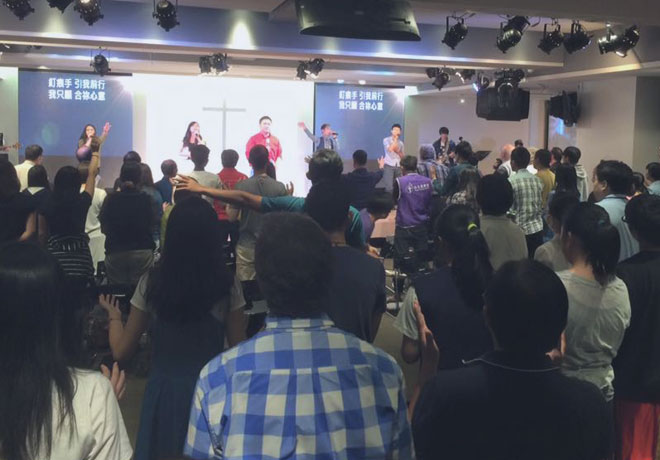
Missions ecosystem
The progress that has been made would not have been nearly as great if it had not been a joint effort involving all potential stakeholders. Lecturers in seminaries, mission candidates, veterans on the field, intercessors, and even Sunday school teachers, all play a big part in transforming the church to be missional. We are really eager to see an ‘ecosystem’ of missions coming from the global Chinese church as a whole in the near future.
Beyond just ‘goers’ or ‘senders’, we need to raise up mobilisers in all kinds.
Beyond just ‘goers’ or ‘senders’, we need to raise up mobilisers in all kinds. Through initiatives such as compiling information about short-term outreach opportunities, coordinating courses and logistic hubs at gateway cities, and networking with pre-field training initiatives for long-term workers, we have seen some exciting developments taking place ‘for such a time as this’.
My motto has always been, ‘We do what we say; we say what we do.’ Our mission, from its conception in 1998 is to mobilise the church for cross-cultural missions, to encourage the sending of missionaries, and to promote missions education. Over the last 20 years, there have been times when everything has certainly gone silent. During those moments, we have just needed to come back to the ‘why’. Whether it is the one percent standing up front or the 99 percent behind the scenes, the calling from our Lord is still loud and clear. What needs to be done needs to be done in humility and a sense of ‘togetherness’.
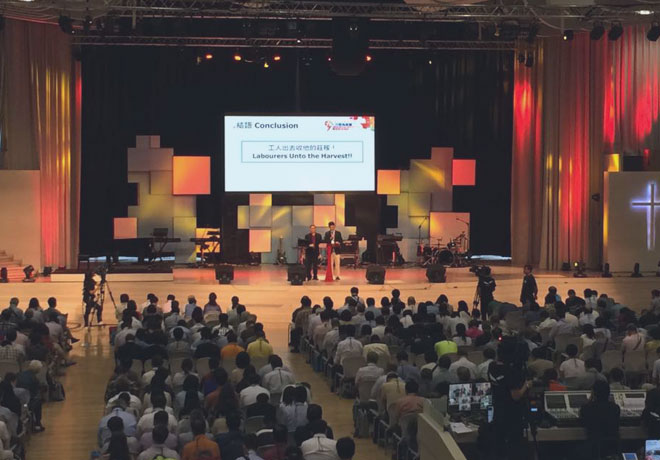
Implications
Every context is unique. Even just in the Chinese speaking world, the way you approach a Hakka-speaking, simplified-Chinese-reading, Methodist Malaysian Chinese congregation or a Cantonese-dominated, traditional-Chinese-reading, 1.5 generation[10] immigrant church in North America must be very different. However, there are some general principles about mobilisation in challenging contexts that can be shared:
- We need to think ‘outside of the box’ in this era of confusion. We are bombarded with massive amounts of information every day. Too often, we try to use the same old mindset to fix the new problem. Ask God to give us wisdom to be more creative in finding our niche for his work.
- ‘Glocalisation’ means that we need to speak the heart language of the target audience with sincerity and with a global perspective. ‘Language’ is not just the translation of the message but the interpretation of it.
- Communicating the ‘why’ is always more important than the ‘what’. We need to stick to the plan.
- Last but not least, ‘togetherness’ is key to what we do.
Knowing all of this, I want to invite you to join hands with us in the greatest endeavour, to wake up the sleeping churches around the world and finish the task ahead of us.
Endnotes
- Stories of pioneering Presbyterian missionaries Scottish Physician J Maxwell and Canadian George Mackay can be found at https://en.wikipedia.org/wiki/James_Laidlaw_Maxwell, http://bdcconline.net/en/stories/mackay-george-leslie.
- Editor’s Note: See article by Kent Parks entitled, ‘Finishing the Remaining 29% of World Evangelization’, in May 2017 issue of Lausanne Global Analysis https://lausanne.org/content/lga/2017-05/finishing-the-remaining-29-of-world-evangelization.
- See https://www.facebook.com/unitedmissions/posts/1505723909501572.
- The definition here (E1-E3) is according to Dr. Ralph Winter http://raynerrambler.blogspot.tw/2007/09/ralph-d-winters-e-0-e-1-e-2-e-3-scale.html.
- See http://www.ixresearch.com/reports/cati.
- See https://www.facebook.com/praychangeworld/.
- See https://www.facebook.com/changingmyworldnow.
- See https://www.youtube.com/watch?v=DsR9B5ctE1Y&t=21s.
- See https://prayercast.com/nations.html.
- See https://en.wikipedia.org/wiki/Immigrant_generations#1.5_generation.
